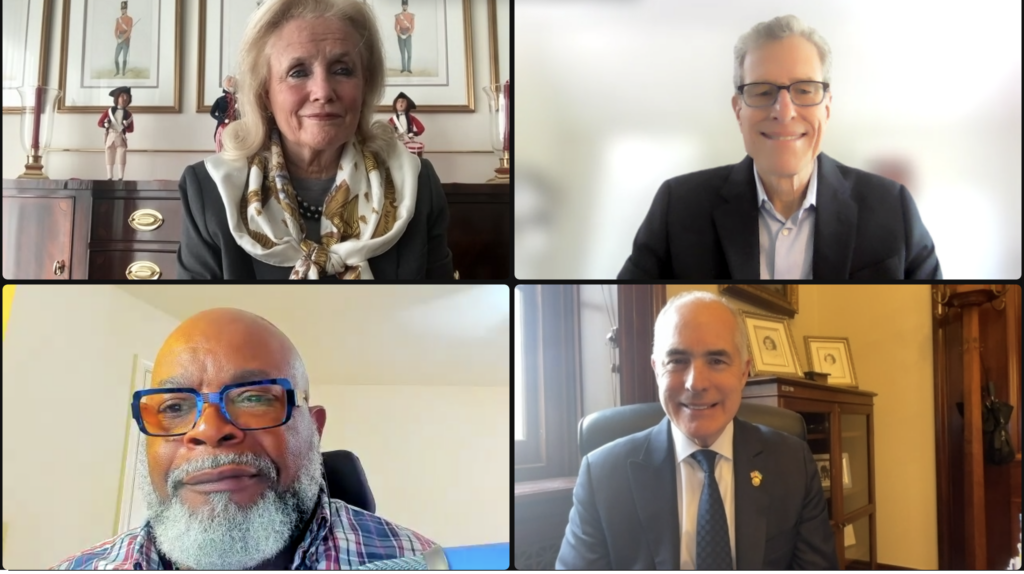
Washington, DC — Today, U.S. Senator Bob Casey (D-PA), U.S. Representative Debbie Dingell (D-MI-06), and the National Council on Independent Living’s Theo Braddy joined Protect Our Care for a press conference to discuss how the end of the Medicaid continuous coverage requirement especially impacts people with disabilities. During the event, speakers discussed how governors must follow the Biden-Harris administration’s guidance and do everything in their power to ensure that people counting on Medicaid do not lose coverage due to burdensome paperwork and red tape.
Congress passed legislation at the beginning of the COVID-19 pandemic to protect access to Medicaid by ensuring no one could be disenrolled during the public health emergency. This provision expired on April 1, and an estimated 15 million people are at risk of losing coverage. Medicaid covers 45 percent of nonelderly adults with disabilities – that’s 10 million people, including people with physical disabilities, developmental disabilities, and brain injuries. Medicaid is also an important source of coverage for people with mental health and substance use disorders.
In addition to the challenges from Medicaid unwinding, House Republicans recently passed their Default on American Act, threatening health coverage for 21 million people and creating more administrative burdens for states as they work on redeterminations of Medicaid eligibility. The bill also includes radical cuts to vital health care programs, including veterans’ health care, nursing home safety, mental health services, and more.
“Medicaid is vital for millions of people,” said U.S. Senate Aging Committee Chairman Bob Casey (D-PA). “Over 9 million people with disabilities are covered by Medicaid, and 72 percent of children could lose their Medicaid or CHIP coverage as the continuous coverage provision ends, even though they are still eligible. I want to impart an urgent message to people across the country enrolled in Medicaid or CHIP—make sure you get informed, make a plan for health care enrollment, and visit Medicaid.gov to find resources to maintain your coverage.”
“Every American has the right to quality, affordable healthcare, period,” said U.S. Representative Debbie Dingell (D-MI-06). “But currently, millions of Americans are at risk of losing coverage due to the unwinding of the Medicaid continuous enrollment provision. We cannot allow people to slip through the cracks and lose critical coverage simply because they don’t have the right paperwork or don’t know what steps to take to work through the red tape. And it’s especially vital that individuals with disabilities have the support they need to navigate this challenging transition.”
“People with disabilities are more likely to have health issues that require them to use healthcare services at a significantly higher rate than those without disabilities – especially Black, Indigenous, and People of Color with disabilities, having experiences of lower socio-economic status and greater lack of availability to quality healthcare services,” said Theo Braddy, Executive Director of the National Council on Independent Living. “The continued enrollment policy of the pandemic made it possible for people with disabilities to rely on Medicaid as their primary health care coverage and to get better, more consistent healthcare that resulted in better health care outcomes. States need to actively reach out to older adults and people with disabilities who may be disenrolled and work to connect them with other providers such as managed care providers.”
“Medicaid is facing existential threats. The Republican ‘Default on America’ bill, the latest GOP attack on health care, could rip Medicaid coverage away from 21 million people. Medicaid unwinding could result in 15 million people losing coverage. It is the responsibility of every state and every governor to be sure that those at risk from Medicaid unwinding who qualify for Medicaid or the Affordable Care Act stay covered,” said Leslie Dach, Chair of Protect Our Care. “People with disabilities are at particular risk of falling through the cracks and losing their coverage due to paperwork and red tape. It is critical to understand what’s at risk here – the families, people who are working hard every day, people with disabilities, children, moms who rely on Medicaid could lose access to basic health care.”

